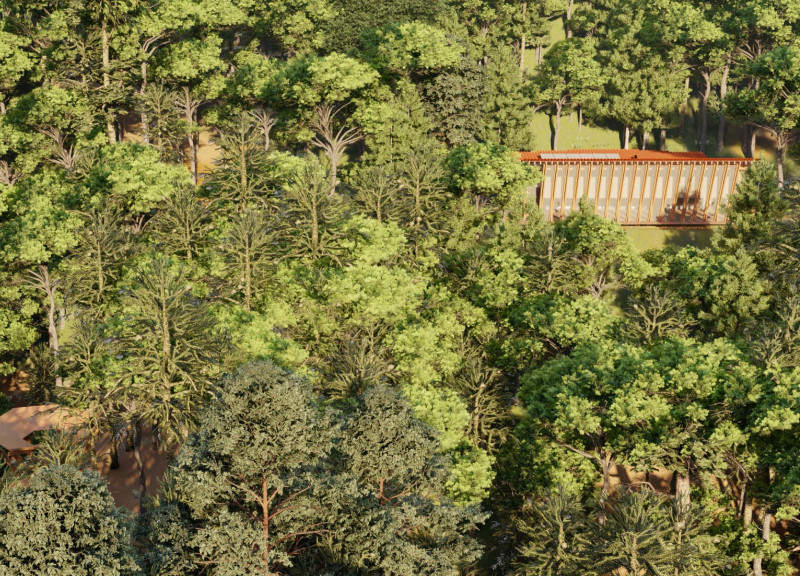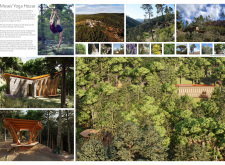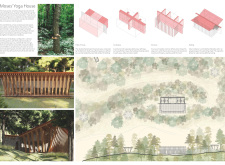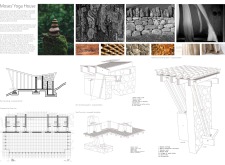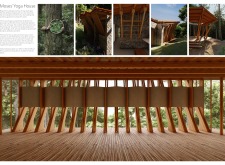5 key facts about this project
The project under analysis represents a contemporary architectural design that blends functionality with aesthetic principles. It is situated in a context that allows for a dialogue between the built environment and the natural landscape, fostering an integrated approach to sustainability and livability. The primary function of the project is to serve as a multipurpose space, accommodating various activities while ensuring a seamless transition between indoor and outdoor areas.
The overall architectural design prioritizes adaptability, featuring modular elements that can be repurposed based on the evolving needs of its users. This adaptability is achieved through open floor plans that encourage fluid movement and versatility. Large windows and strategically placed openings allow for ample natural light, enhancing the sense of space and connection to the surrounding environment. The project utilizes a palette of locally sourced materials, reinforcing its commitment to sustainability and minimizing environmental impact.
Unique Elements of the Design
A key aspect that differentiates this project from conventional designs is its emphasis on biophilic design principles. The integration of natural elements within the architecture not only promotes well-being but also fosters a deeper connection between occupants and their environment. Green walls, living roofs, and water features are incorporated into the design, providing ecological benefits and enhancing aesthetic diversity.
The architectural design employs intelligent passive heating and cooling strategies, utilizing thermal mass and sun shading devices that reduce reliance on mechanical systems. This approach not only lowers energy consumption but also creates a more comfortable environment for occupants year-round. The materials chosen for the project include high-performance glass, sustainably harvested timber, and recycled metals, each selected for its specific properties that contribute to the overall functionality and sustainability of the project.
Spatial Planning and Layout
The spatial organization of the project encourages interaction and engagement among users. Communal areas are thoughtfully placed to promote social interaction while providing private spaces for reflection and solitude. Outdoor spaces are designed as extensions of the indoor experience, inviting occupants to utilize them throughout the year. The careful consideration of circulation paths ensures that movement through the space is intuitive and efficient.
Overall, the project exemplifies a modern approach to architecture that embraces sustainability, innovation, and user-centric design. Each element is meticulously crafted to serve a specific purpose, creating a harmonious environment that reflects contemporary needs.
For a deeper insight into the architectural plans, architectural sections, and architectural ideas that inform this project, readers are encouraged to explore the full project presentation. Understanding the nuances of the design can provide valuable perspectives on contemporary architectural practice and its engagements with emerging cultural and environmental challenges.


